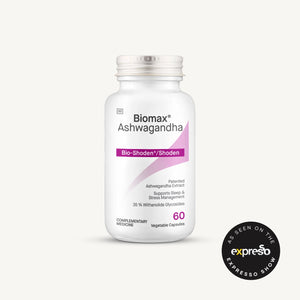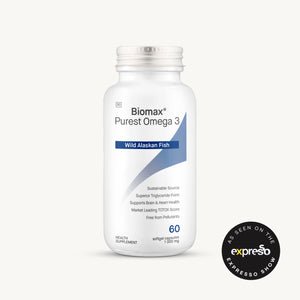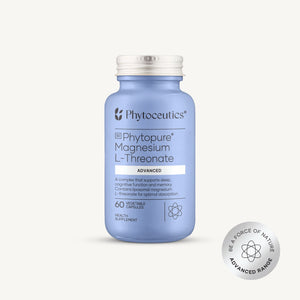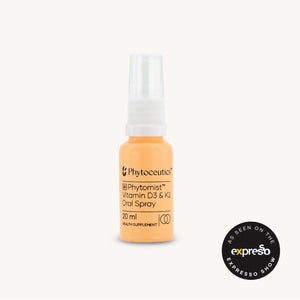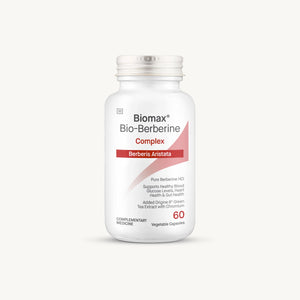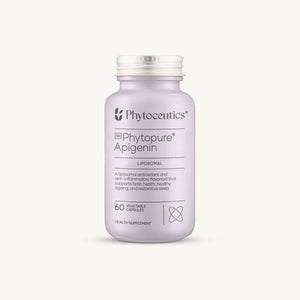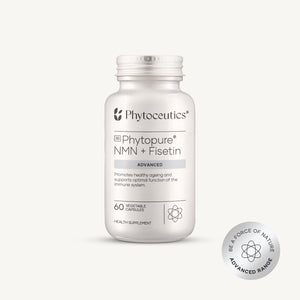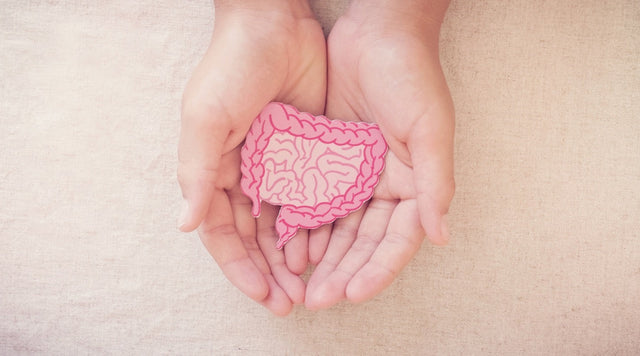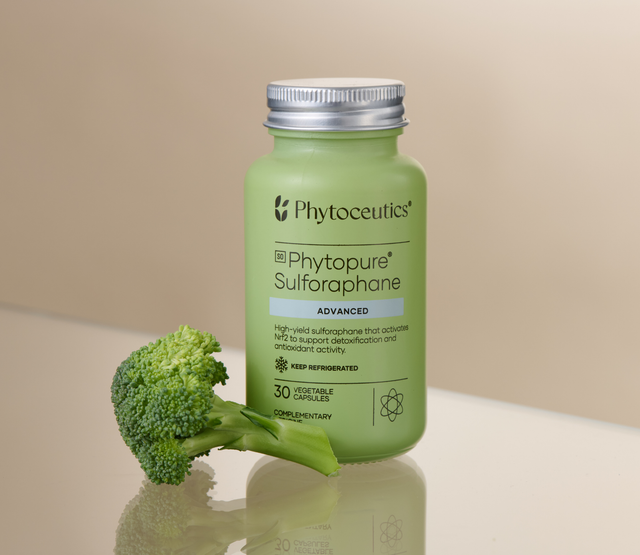In honour of World Menopause Month, Phytoceutics® hosted its very first consumer-focused Menopause Masterclass, led by CEO Laura Johnston. The session brought together two leading experts in women’s health: Dr. Simone Silver, integrative medicine specialist and founder of the Hormonal Health Clinic, and Dr. Mpume Zenda, obstetrician, gynaecologist, and sexologist. The session aimed to provide women with the tools, understanding, and confidence to navigate menopause and hormonal transitions with strength and self-compassion.
Understanding Hormonal Health with Dr. Simone Silver
Dr. Silver opened the discussion by redefining hormonal health, emphasising that hormones impact far more than reproductive function – they influence the brain, heart, metabolism, and overall well-being. She highlighted that hormonal changes in perimenopause and menopause are deeply interconnected with stress, thyroid function, insulin levels, and other hormones in the body.
Dr. Silver explored the historical context of hormonal health, noting that outdated ideas – such as labeling women’s mood changes as “hysteria” – have shaped the way society and medicine approach menopause. She encouraged women to actively advocate for themselves, listening to their body’s messages and participating fully in their healthcare journey.
The session also covered the stages of menopause:
1. Premenopause (20s–30s): Full hormone production, stable FSH (Follicle Stimulating Hormone) levels. Increased FHS levels are a key indicator of menopause.
2. Perimenopause: Hormone fluctuations begin, progesterone declines, oestrogen becomes erratic, leading to mood swings, hot flushes, and anxiety.
3. Menopause: Ovarian hormone production stops, FSH levels rise, oestrogen declines, and long-term metabolic and cardiovascular changes occur.
Dr. Silver emphasised that menopause is about much more than missed periods – it affects mood, cognition, sleep, heart and brain health, gut function, and even dental health. She encouraged women to consider both their immediate symptoms and their long-term health, advocating for preventive measures like regular cholesterol and glucose testing and monitoring waist circumference.
Hormones and Brain Health
A major focus of Dr. Silver’s presentation was the impact of declining hormones on the brain. Oestrogen and progesterone help regulate neurochemicals like serotonin, GABA, and dopamine, which affect mood, cognition, and sleep. Menopause-related hormone decline can lead to brain fog, sleep disturbances, anxiety, and memory issues, making early awareness and intervention essential.
Hormones and Weight Management
Dr. Silver explained how during menopause, many women experience a profound shift in their metabolic health, largely driven by the loss of oestrogen. This hormonal change contributes to a slower metabolism, redistribution of fat to the abdominal area, and increased insulin resistance – all of which make it more difficult to maintain or lose weight. Compounding this, the natural ageing process further reduces metabolic rate, creating a perfect storm for weight gain.
Despite these challenges, managing weight during menopause is essential for long-term health. Excess abdominal fat not only increases the risk of cardiovascular disease, type 2 diabetes, and fatty liver, but also raises the risk of hormone-related cancers such as breast cancer.
Menopause Hormone Therapy (MHT) and Supplementation
Dr. Silver addressed Menopause Hormone Therapy (MHT)/Hormone Replacement Therapy (HRT), urging women not to fear hormones based on outdated studies. Modern, personalised MHT can offer significant benefits when carefully monitored.
For those exploring non-hormonal support, she recommended evidence-based supplements tailored to individual needs:
- Omega-3s for heart health and inflammation
- Probiotics, fibre & butyrate to support gut balance and brain-gut communication
- Magnesium for brain, mood, and bone health
- Vitamin D for bone and immune health
- GABA, Lactium, L-theanine & Magnesium L-threonate for sleep support
Other targeted supplements depending on personal concerns, such as Calcium with K2, CoQ10 for heart health, and adaptogens like Ashwagandha for stress management.
Dr. Silver concluded with a holistic approach: menopause affects mind, body, and spirit, and women should integrate hormonal support, nutrition, lifestyle, and psychological well-being to thrive during this transformative phase.
Navigating Sexual Health During Menopause with Dr. Mpume Zenda
Building on the insights from Dr. Simone Silver, Dr. Mpume Zenda shifted the conversation to sexual well-being, emphasising that menopause affects intimacy, pleasure, and connection – but does not signal the end of a fulfilling sex life. Dr. Zenda highlighted that cultural and historical attitudes often make women feel ashamed or hesitant to discuss sexual health, which can prevent them from seeking support and solutions. She encouraged women to advocate for themselves, build rapport with healthcare providers, and normalise open conversations about sexual wellness.
The Phases of Womanhood
Dr. Zenda explained how a woman’s life unfolds in distinct hormonal phases – puberty, reproductive years, and perimenopause to menopause – each carrying its own beauty, challenges, and transformations. Puberty marks the initiation into womanhood, when hormonal surges shape not only the body but also emotional and psychological identity.
The reproductive phase that follows is often associated with peak fertility and vitality, but it also comes with societal pressures and misconceptions about a woman’s worth being tied to her reproductive capacity.
As women enter perimenopause and menopause, oestrogen levels decline and the body undergoes profound changes – yet this stage is not an ending, but rather an evolution. Dr. Zenda highlighted the importance of embracing this transition with empathy and understanding, especially when multiple generations in a household, such as mothers and teenage daughters, are simultaneously experiencing hormonal shifts.
Dr. Zenda outlined the major hormonal changes impacting sexual health:
-
Oestrogen: Declining oestrogen can cause vaginal dryness and increased susceptibility to UTIs, making sexual activity uncomfortable. Mood changes can also affect libido.
-
Progesterone: Known as the “keep calm” hormone, its decline can impact mood and patience, sometimes contributing to irritability.
-
Testosterone: The “superpower hormone” that drives libido, arousal, and sexual energy. Even in menopause, low-dose testosterone therapy can safely support sexual desire and vitality.
Desire, Female Sexual Dysfunction, and Treatment
Dr. Zenda explained that female sexual well-being is a whole-body experience, encompassing physical, emotional, and psychological dimensions. Desire, she noted, isn’t always spontaneous – it can be responsive, meaning it often emerges through connection, touch, or emotional intimacy rather than instant arousal. While men tend to experience more spontaneous desire, many women function cyclically, requiring time, context, and emotional safety to feel aroused. Understanding this difference helps remove pressure and guilt, especially during midlife when hormonal changes naturally alter libido.
Dr. Zenda outlined the sexual response cycle – desire, arousal, orgasm, and resolution – and explained how hormones like testosterone and oestrogen play central roles in maintaining sexual function. With the decline of oestrogen during perimenopause and menopause, women may experience vaginal dryness, thinning of tissue, and discomfort, which can affect both desire and arousal. In fact, 10–20% of women globally experience difficulties with orgasm, often due to pain, hormonal changes, or lack of stimulation.
Dr. Zenda also encouraged women to reclaim pleasure, recognising that sexual intimacy is not limited to penetration. Ultimately, she reminded women that sexual health is an integral part of overall health, grounded in self-knowledge, consent, and communication. “Be the custodian of your own pleasure,” she said. “You may not have your 20-year-old body, but you still have the capacity to experience pleasure.”
Supplementing for Peri/Menopause
As women transition through perimenopause and menopause, hormonal changes can influence mood, sleep, skin, metabolism, and libido. To help women navigate this stage with confidence, Laura introduced the upcoming Phytofemme™ range by Phytoceutics® – formulated for women, by women – to support hormones, beauty, mood, and sleep.
For everyday wellness, she recommended key nutrients including omega-3, magnesium, vitamin D, and probiotics. A high-quality omega-3 such as Biomax® Purest Omega 3 ensures purity with a low TOTOX score, while Phytopure® Magnesium Complex supports bone health, muscle and nerve function, and heart health.
Since many people are deficient in vitamin D, Phytomist™ Vitamin D3 + K2 Oral Spray helps maintain bone, immune, and hormonal health. For gut balance and mood balance, Ceregut® Probiotic supports the microbiome throughout hormonal changes in menopause.
Laura emphasised that sleep is foundational to well-being. Bettersleep™, with Lactium®, GABA, and L-theanine, promotes calm and restorative rest; Phytopure® Magnesium L-Threonate supports cognitive function and sleep quality; and mood-enhancing supplements such as Felix Saffron®, containing clinically studied Affron® extract, help support emotional balance and stress resilience.
Adaptogenic herbs like Biomax® Ashwagandha also play a role in improving stress tolerance and even libido. She further introduced Phytopure® Apigenin, derived from chamomile, which protects the brain from neuroinflammation and promotes restful sleep. NMN, by increasing NAD+ levels, supports cellular energy and combats fatigue.
For healthy weight management, Laura recommended Biomax® Bio-Berberine®, which aids in maintaining stable blood sugar and glucose metabolism. Together, these science-backed supplements offer a holistic approach to thriving through midlife.
Questions From the Audience: HRT, Menopause, Mood, and Where to Start
In the closing moments of the discussion, Dr. Simone Silver and Dr. Mpume Zenda addressed some of the most frequently asked questions from the audience.
Can Hormone Replacement Therapy Cause Breast Cancer?
One of the biggest concerns raised was around HRT (Hormone Replacement Therapy) and breast cancer risk, particularly for women with a family history of the disease. Dr. Silver explained how the perceived risks of HRT are often lower than once believed, noting that modern hormone therapies are far safer and should be viewed in context. She reminded women to consider not only the risks but also the significant benefits of HRT, including heart, brain, and bone preservation, emphasising that the decision should always be personalised and made in consultation with a trusted practitioner.
How Do I Know I've Reached Menopause on the Contraceptive Pill?
Dr. Zenda then tackled the question of how to know if you’ve reached menopause while on the contraceptive pill. Because the pill prevents ovulation and can cause artificial bleeding, she explained that it often masks natural hormonal changes. To determine menopausal status, doctors may recommend pausing contraception and testing levels of FSH (Follicle Stimulating Hormone) and AMH (Anti-Müllerian Hormone) to better understand ovarian function.
She also noted that hormonal IUDs and injectables can make this assessment more complex, so age, symptoms, and family history should all be considered.
Are Mood Changes Normal in Menopause?
On the topic of mood and emotional changes, Dr. Silver highlighted how stress and hormonal shifts are deeply interconnected. As oestrogen and progesterone levels decline, they influence key neurochemicals such as serotonin, dopamine, and GABA, which regulate mood and calmness.
Combined with modern life stressors – career, family, and caregiving – this “double whammy” can amplify irritability, anxiety, emotional sensitivity, and even low libido. Addressing both stress management and hormonal balance is therefore essential for mental well-being during midlife.
Supplements: Where Do I Begin?
Finally, when asked where to start with supplements, Laura advised women to “start small.” Identify one or two key areas – such as sleep, mood, or energy – and introduce targeted, high-quality supplements consistently for three months. Track how your body responds, get blood tests, and adjust as needed. As Laura noted, “there’s no one-size-fits-all – address your problem areas first.”
Key Takeaways from the Masterclass
The masterclass concluded with a holistic message: menopause is a phase of transformation, not limitation. Key points included:
-
Hormones influence more than reproduction – they affect mood, sleep, metabolism, and sexual function.
-
Sexual well-being is a vital part of overall health, and open communication is essential.
-
Lifestyle factors – nutrition, exercise, stress management, and mental health – play a significant role in menopausal experience.
-
Evidence-based supplements and personalised medical interventions, including MHT/HRT and low-dose testosterone, can support symptoms and quality of life.
-
Attitude and mindset matter: embracing change, self-compassion, and advocating for your needs empowers women to thrive during menopause and beyond.
Use the code WEBINAR20 for 20% off your next order on www.phytoceutics.com.
This content is for informational purposes only and does not constitute medical advice. Always consult with your healthcare provider before starting any new supplement, especially if you are pregnant, nursing, have a medical condition, or are taking prescription or chronic medication.

